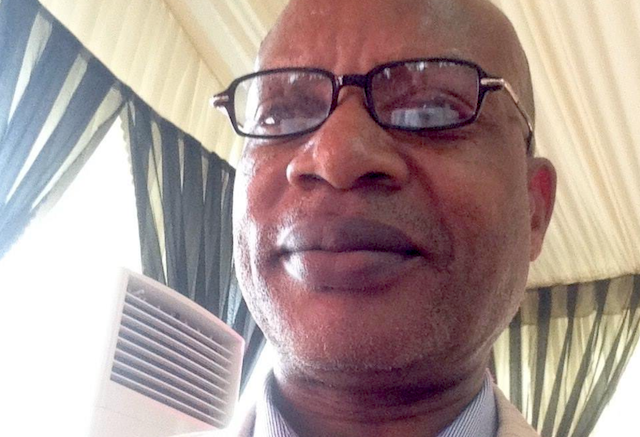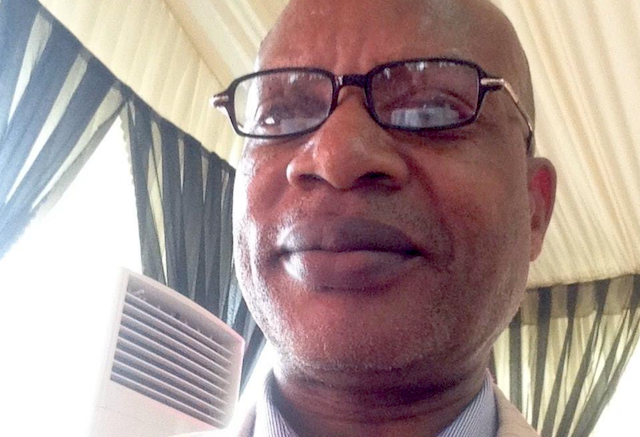Seeming to belie the header for this article that’s run three installments, a couple of weeks has witnessed the return of former Governor and Minister of the Federal Capital Territory (FCT), Chief Nyesom Wike – from his semblance of a sabbatical leave – to rejoin Governor Siminalayi Fubara in shadow-boxing, and stoking the metatarsising Rivers political crisis.
On Saturday, May 11, 2024, in Ogu-Bolo, Rivers State, at a grand reception in honour of Chief George Thompson Sekibo for his 20 years of public service, Wike – who no longer has the luxury of daily political rhetoric as when he’s governor – addressed five issues Fubara would likely tackle on separate days.
They include: A mistake he’d made, without elaborating; his deliberate bullying of the Fubara camp, to create fear, and make it to commit mistakes; that nobody can remove his pro-lawmakers sacked by the court; denying asking anyone to worship him; and the need for beneficiaries to show appreciation to their benefactors.
This comes as Fubara says he’s records of his duties as a civil servant, and the Accountant General of Rivers State under the Wike administration (2015-2023), stressing that all activities he carried out were based on “approvals” from his superiors.
In a veiled reference to his promise to probe the Wike government, Fubara, during the inauguration of Egbeda internal roads, in Emohua local government area on Thursday, May 16, said he’s ready to answer any queries, as his records would show that his previous official activities in government “were based on approvals.”
In similar masked remarks obviously referring to Fubara, Wike said he made a mistake in his political calculation, by shutting out an array of chieftains of the Peoples Democratic Party (PDP) from the Rivers governorship in 2023, and settling for Fubara. “But nobody is above mistakes,” Wike said, and asked Rivers people to forgive him.
His said: “I want to say this clearly, in life we have made a mistake. I have made a mistake. I own it up and I say God forgive me. I have said all of you forgive me. I am a human, I am bound to make a mistake. So, forgive me for making a wrong judgment. So, nobody should kill (because of it). But we will correct it (mistake) at the appropriate time.”
On the sacked lawmakers loyal to him, Wike said the law and due process would take its course, irrespective of whatever happened, adding, “If they like, they can go to anybody by 2 a.m or 4 a.m to get an injunction. The law will take its course. We must follow due process.”
Wike urged the lawmakers not to be intimidated, saying, “Don’t be afraid. Nobody will remove you as a lawmaker. Most of you don’t understand. This is our work. Our business is to make them fear. That is what I am doing. We will make them to be angry every day, and they will continue to make mistakes.”
Rounding off, Wike said he isn’t God, and as such, had never demanded that anybody should worship him. “Nobody can worship man. All of us believe that it is only God we will worship. (But) as politicians, we appreciate people who have helped us.”
On the latter issue, Fubara’s previously said he appreciated the fact that Wike played a pivotal role in his governorship, but that it’s God that used him as a vessel to fulfil His purpose, and so, only God deserves his worship and not any human.
Fubara said: “God can do anything He wants to do when He wants to do it. It is only for us to realise that God will not come down from Heaven but will pass through one man or woman to achieve His purpose. So, for that reason, when we act, we act as humans; human vessels that God has used, and not seeing yourself as God.
“I want to say this clearly, that we appreciate the role our leaders, most especially the immediate past governor (Wike) played. But that is not enough for me to worship a human being. I can’t do that.”
On the hot-potato matter of probing Wike, whose government Fubara served as Accountant General, the governor told his audience at the Egbeda roads’ inauguration in Emohua that he wasn’t entertaining any fears, but ready and prepared to defend himself whenever he’s queried or called to answer alleged financial impropriety under the Wike government.
Fubara said: “What we bring to our people is service delivery at record time and cost-effective. Everything we are doing is in my white paper (record of activities). I carry it along. There is no issue of any manipulation. Call me any day, any time, it is there.
“Even the ones l did (as a civil servant) before this time, I still have all the records. If you call me any day, I will bring my records of all my activities in government. I know that as a civil servant, what is most important is record-keeping.
“I am not scared of anything. Anybody who calls me up any day, any time, I have my records to show. I have all the approvals to show that I acted based on approvals, and not personal decisions. We are not going to rest until we make everyone happy in Rivers State.”
This leads to the questions: If Fubara’s that sparkling clean, as he claims, why did he allegedly hide, and refuse to surrender himself to the Economic and Financial Crimes Commission (EFCC) for investigation during the 2023 general election? Or was it then Governor Wike trying to shield him from the EFCC, to prevent him from spilling reported malfeasance in the Wike government? Members of the public Fubara’s called to witness his incorruptibility deserve a plausible answer to the query!
Meanwhile, as the probe of Wike looks to proceed apace, only a miraculous intervention in the crisis – which Fubara doubts can be settled amicably after President Bola Tinubu’s brokered peace deal between Fubara and Wike looks to breakdown – would prevent him from declaring soon that, “enough is enough,” and go for Wike and his members’ jugular, deploying the enormous powers at his disposal that he’s said “he doesn’t know what to do with power,” as “the most hit and abused governor” (in Nigeria).
So, when he’s decided, the scenarios may look as follows:
First, there’re a few strategies that Fubara’s outlined to deal with the recalcitrant lawmakers he’s described as “not existing.” The governor could evict them from the Rivers State House of Assembly Residential Quarters in Port Harcourt – where the legislators and their families domicile, and also use as a legislative chamber – to deny them the venue and avenue to make laws and/or plot his impeachment.
Second, Fubara could mimic some of his counterparts, and withhold the lawmakers’ emoluments, and allocations to the legislature, such as he allegedly did to the April 2024 allocations to Rivers local councils, whose chairmen, majorly loyal to Wike, have vowed to remain in office after their tenure in June 2024, “in line with the law” passed by the pro-Wike lawmakers, extending their tenure until elected local government officials are installed.
Remarkably, a Rivers High Court has struck down that “law” as illegally enacted by the lawmakers whose seats had been declared vacant on account of their defection to the All Progressives Congress (APC) from the PDP, which sponsored them in 2023.
Prior, Fubara had warned the council chairmen that they’d a few days remaining in their tenure, and shouldn’t forment trouble within the period, as “nobody has monopoly of violence.” He handed down the warning at Egbeda community in Emohua, during the official flag-off of the Elele-Egbeda-Omoku road project.
As reported by New Telegraph, this comes as miscreants, allegedly at the behest of the aggrieved council chairmen, attacked some persons who attended the governor’s inauguration of the Aleto-Ogale-Ebubu-Eteo road project in Eleme local government area on Tuesday, May 14.
Fubara said: “Let me also say this here. When we left Aleto the other day, some people went there and attacked our people. There is no need for that. Nobody has the monopoly of violence. So, I’m begging everyone, please, conduct yourself. As a matter of fact, I am the one who is most hit and abused as a Governor who doesn’t know what to do with power. Is it not? Have I said anything?
“So, I am advising those people, who call themselves local government chairmen: you have a few days in office. Please, conduct yourselves in a peaceful manner. Politics will come, politics will go, but we will still live our lives. Let nobody deceive you, if you deliberately hurt anybody because of expressing your useless support, nobody will forgive you. You will pay for it.
“Just endure until when you finish, then you go your way. I don’t want trouble. I don’t want anything that will bring any problems in this state. I know what they want to do, but we will not give them the opportunity.
“We have made our promise to our leader, who happens to be the President of the Federal Republic of Nigeria, that we will take the path of peace and that is the path we are taking. We will continue to take that path.
“Don’t mind what they say. Don’t mind what they do. Peace remains the path to take. (But) while taking the path of that peace, it does not mean that we won’t defend ourselves… No, no no. We need to also protect ourselves in a lawful manner.”
The next installment of the serialisation under the running header will conclude what Governor Fubara could do to cage former Governor Wike and his loyalists in the cascading political crisis that daily produces different scenarios in Rivers State!
Mr Ezomon, Journalist and Media Consultant, writes from Lagos, Nigeria

